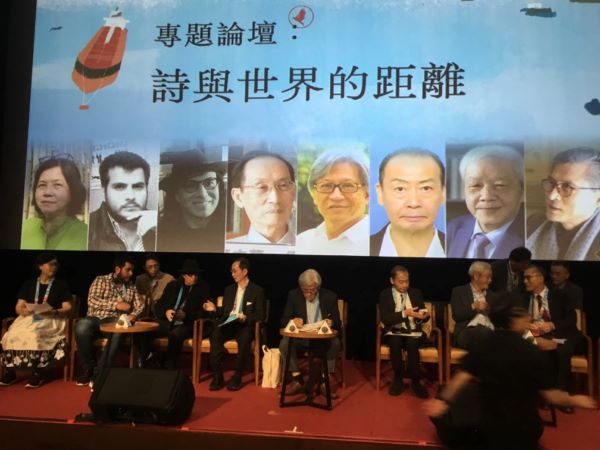
The Amazing Revival of Kaohsiung World Poetry Festival
22 poets from 12 countries and 41 Taiwanese poets were invited bringing Kaohsiung closer to the world and promoting international exchanges of poets
Ashraf Aboul-Yazid
In an interview the Taiwanese poet Miao-yi Tu, talked about her mission in creating international literary exchange for nine years: “In 2014, I participated for the first time in the International Poetry Festival in Chile, which opened the door to the beautiful garden of international literature. I have experienced many setbacks during this time. Still I can persevere thanks to the strong Siraya blood that runs through my veins—it strengthens me when the going gets tough.”
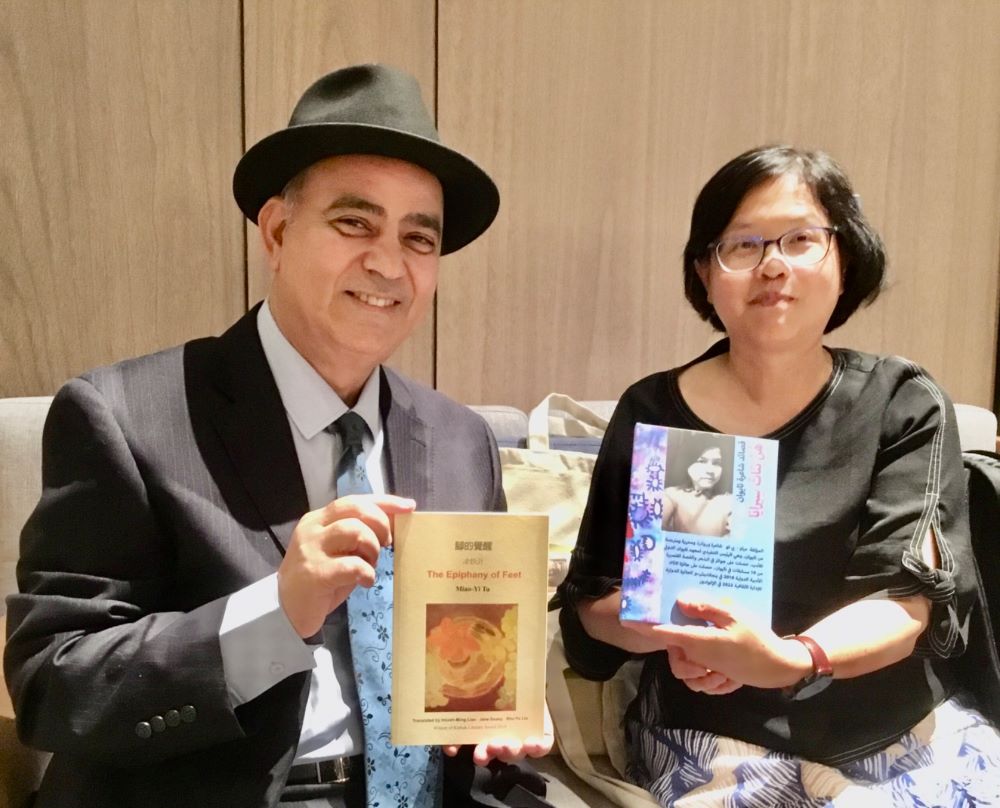
The Siraya women and people, mentioned by the Taiwanese poet, have settled flat coastal plains in the southwest part of the island of Taiwan and corresponding sections of the east coast; forming the plains indigenous peoples— that is, occupants of flat coastal regions rather than mountain areas. Like other indigenous peoples of Taiwan they are ethnically and linguistically Austronesian. “Taiwan” (historically Taiouwang, originated from the Siraya language belongs to some of the most spoken languages in the western Pacific. Traditionally the Siraya lived in villages, which were in constant conflict with one another. Women handled agriculture and religion, while men handled hunting, warfare and decision-making. Married couples did not live together, with the wife living with her parents and the husband living in the men’s quarters; if they wanted to see one another, the husband would have to visit in secret. The Siraya were unusual in that most women did not have children until their mid-thirties.
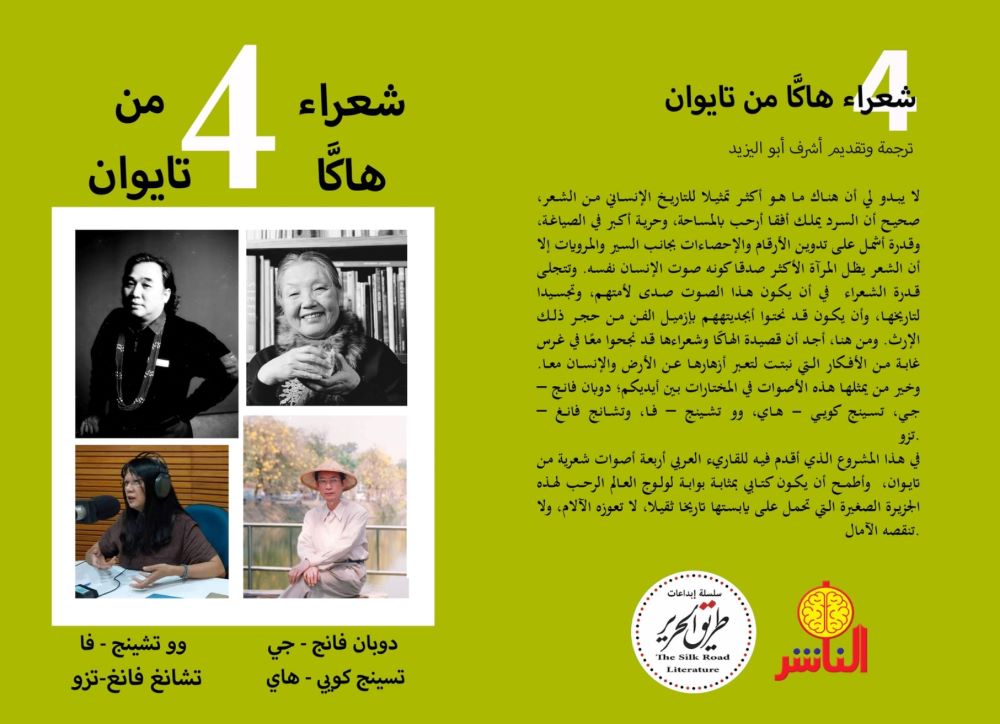
Miao-Yi Tu is a poet, novelist, editor and translator in Tainan, Taiwan. She is the CEO of the Taiwan International Literature Institute. Part of her poems translated in 11 languages. I got the chance to translate a collection of her poems, published with her paintings, in Arabic.
Miao-yi Tu thanked many people from other countries who have helped her. She believes that Spanish is the dominant language in Central and South America. She can speak English fluently but her knowledge of Spanish is very rudimentary. However, she was destined to go there as she receives many invitations from international poetry festivals every year. It’s hard to refuse such hospitality, so she packed her suitcase and headed for Latin America.
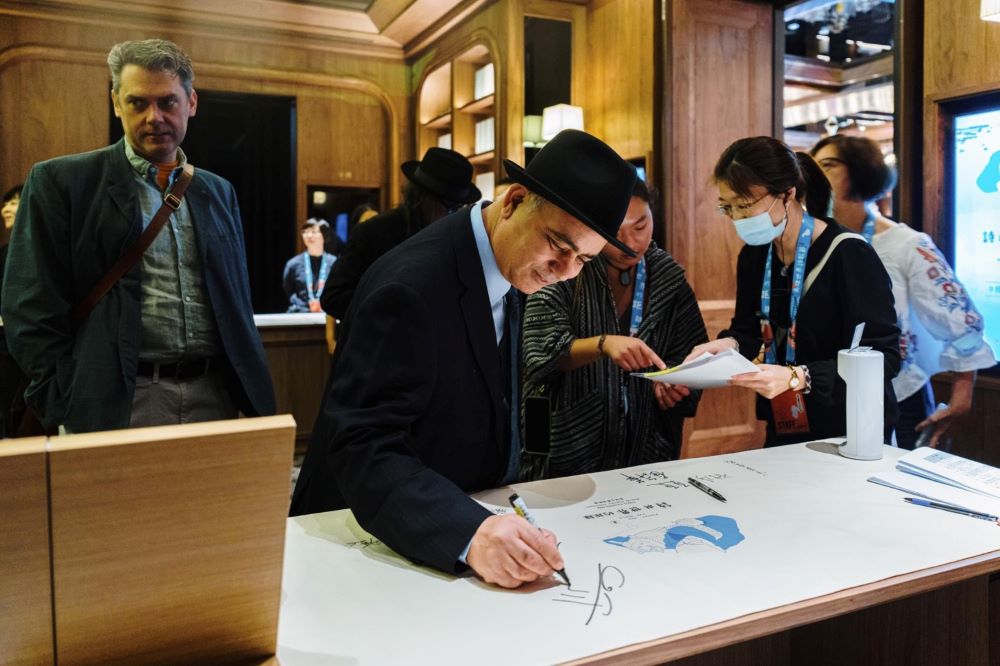
In Central and South America, she read her poems in Taiwanese and presented the Taiwanese history in English. Her poems were translated into Spanish in advance, and when it was her turn, local writers would read her poems for her. Therefore, despite my lack of fluency in Spanish, she has promoted Taiwanese literature for years. She has attended international poetry festivals and made friends with writers from abroad. Moreover, she has participated in world poetry collections edited in many countries, promoting her works and other writers’ works overseas. She deeply feels that doing this alone is not enough; Taiwan must form a team to play in this literature world cup.
Last year, the iconic Taiwanese poet Kuei-Hai Tseng won the representative International Poetry Award Ileana Espinel Cedeño. It was significant because it was the first time Ecuador awarded an Asian poet. She remembers once, when several poets from various countries were walking down the streets of the beautiful port city of Guayaquil, she mentioned that Kaohsiung was also a beautiful port city, which spiked their interest in visiting Southern Taiwan.
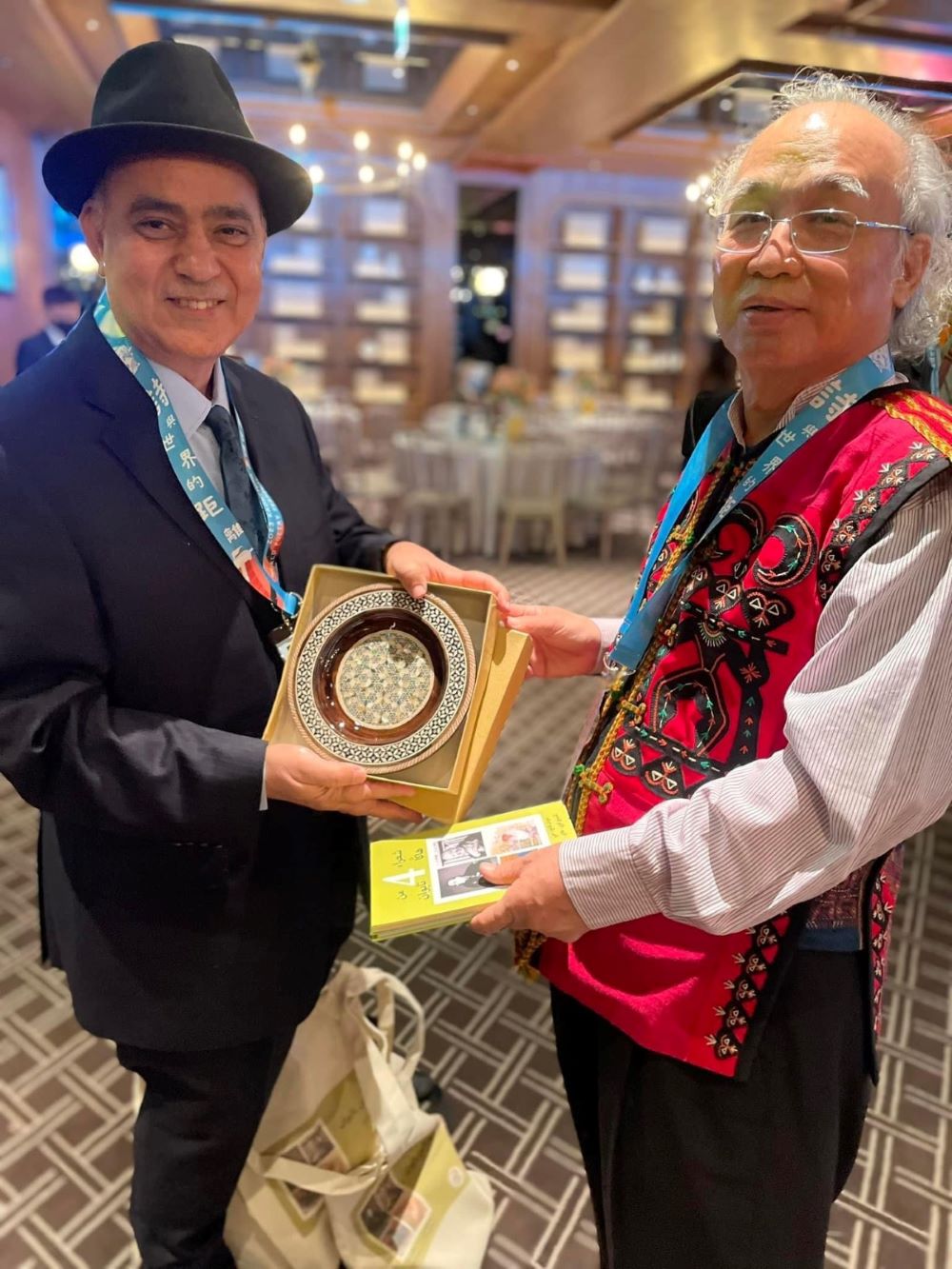
In this way, she initiated the connection between the Caribbean and the Taiwan Strait. The last time Kaohsiung held an international poetry festival was in 2005. Kaohsiung has remained silent in the face of international literary circles for eighteen years. Therefore, on her return to Taiwanese, she discussed this issue with senior members of Kaohsiung’s literary circles. Thanks to the hard work of many, Kaohsiung World Poetry Festival2003 —with this connection with the Southern Hemisphere—becomes a reality. In the grand river of international literature, Taiwanese literature runs toward the sun in a beautiful rhythm that flows gently.
I translated a selection of Miao’s poems into Arabic, entitled The Are the Daughters of Siraya. They were illustrated by her paintings.
Miao – Yi Tu also invited me to join the Project of Hakka Poets into other languages. Four Hakka poets were nominated to translate their selections in Arabic, from English texts. These are the poems translated for each of them
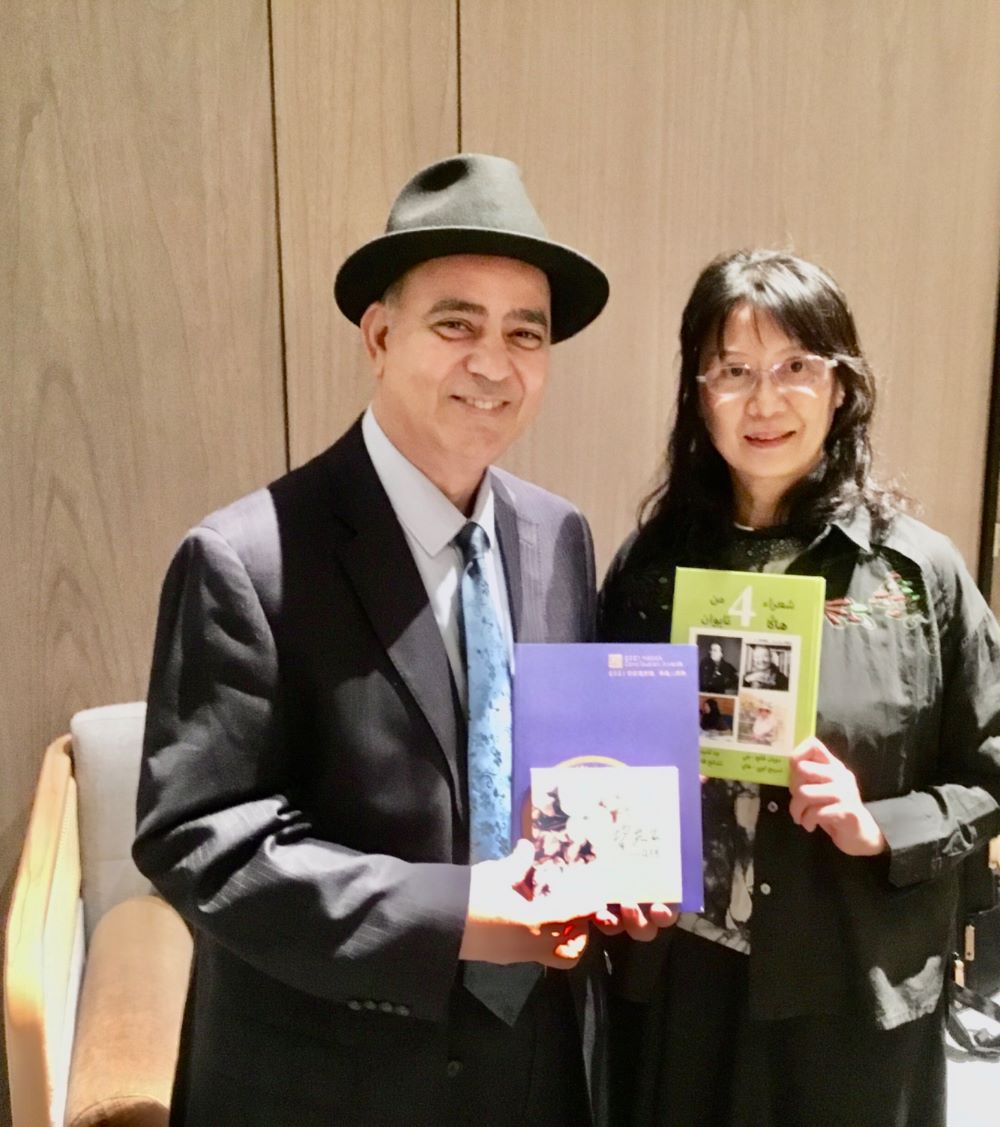
Du Pan Fang-ge’s poems are, The Play of Peace, The Ghost Festival, Shell Ginger, Flowers, The Voice, The Way, Dreams, When the Light Is There, The Cocoon of, Sorrow, The Salt Field Buffalo and Paper People. Tseng Kuei-Hai’s poems are: A Patient, Let’s go fly a kite, Glasses, A Writer’s ID Card, The Prophet and the Truth, Executive Ground, Night Flowers Blossoms—for my wife and every Hakka woman, A Pinpu, Holo and Hakka Taiwanese, Purple Crow Butterflies’ Winter Festival and A Lonesome Bird’s Journey. Wu Ching-fa ‘s poems are: Rice Mother’s Horse That Trotted Backwards, Navel, The Key, A Ruin, Morning Glory in Evening Mist, Knocking at the Door, Words in a Dream , An Incoming Call and Don’t Let the Bullets Fly. Fang-Tzu Chang’s poems are Unforgettable Bai-leng, Aqueduct, Presence, Making Sounds, Cracks , Tied in a Bow, We Are Standing Here, Where Our Hearts Both Arrive , At a Nightfall as Coco Magnolias Bloom, Claws Stuck In – On Dapu Controversy, A Flower, Flowers Bloom in Front of Us and Hakka. I had the chance to meet three of them; Tseng Kuei-Hai, Wu Ching-fa, Fang-Tzu Chang and the daughter of the late poet Du Pan Fang-ge.
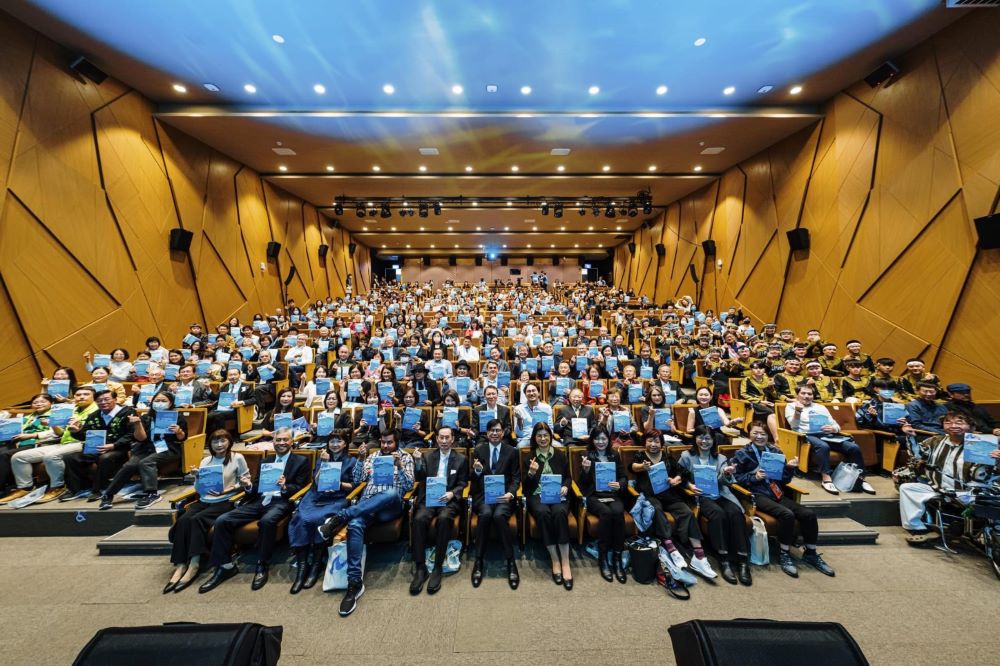
The inauguration of the festival brought memories of its last edition. After 18 years, the 2023 Kaohsiung World Poetry Festival was revived with the theme “The Distance between Poetry and the World” and its grand opening was held at the Municipal Library. Mayor Chen Qimai personally attended to pay tribute to Dr. Zeng Guihai and other poets. This year’s Kaohsiung Poetry Festival has 22 poets from 12 countries and 41 old, middle-aged and young generation poets from Taiwan. A total of 63 poets have been invited to participate.
Chen Qimai said that Kaohsiung is a city that pays attention to human rights and diverse ethnic groups. It also attaches great importance to cultural nurturing and praises poets and writers. It is an important intangible asset of the country and a symbol of a great city, and beauty will last forever in people’s hearts. We hope that the World Poetry Festival will be held regularly in the future so that more poets can gather in Kaohsiung.
Chen Qimai said that Kaohsiung has a beautiful and diverse ethnic group, so at the beginning of the event, the Nibuen Chorus was invited to perform, followed by local musicians from Meinong and Golden Melody Award winners Lin Shengxiang and Dazhu Yan. Kaohsiung pays attention to the indigenous people in the city, Hakka and other ethnic groups, today is also the Kaohsiung Gay Parade. Last night, rainbow lights were raised at the Pop Music Center to warmly welcome different ethnic groups, cross-fields, and different genders, expressing their love for the land of Kaohsiung and their feelings for the city.
Chen Qimai then recalled that when the Poetry Festival was first held in 2005, he once read the poem “Tomorrow’s New City” with Dr. Zeng Guihai. He praised the poets for using concise words to express their observations and reflections on social life and express their spiritual feelings for the countryside; Kaohsiung Transforming into a city with cultural depth is the result of the efforts of many people here. As Dr. Zeng Guihai mentioned in his speech, Kaohsiung, as a sacred place for democracy, has gone from being a marginal area of mainstream culture in the past to cultivating a strong understanding of human rights and humanity through everyone’s efforts.
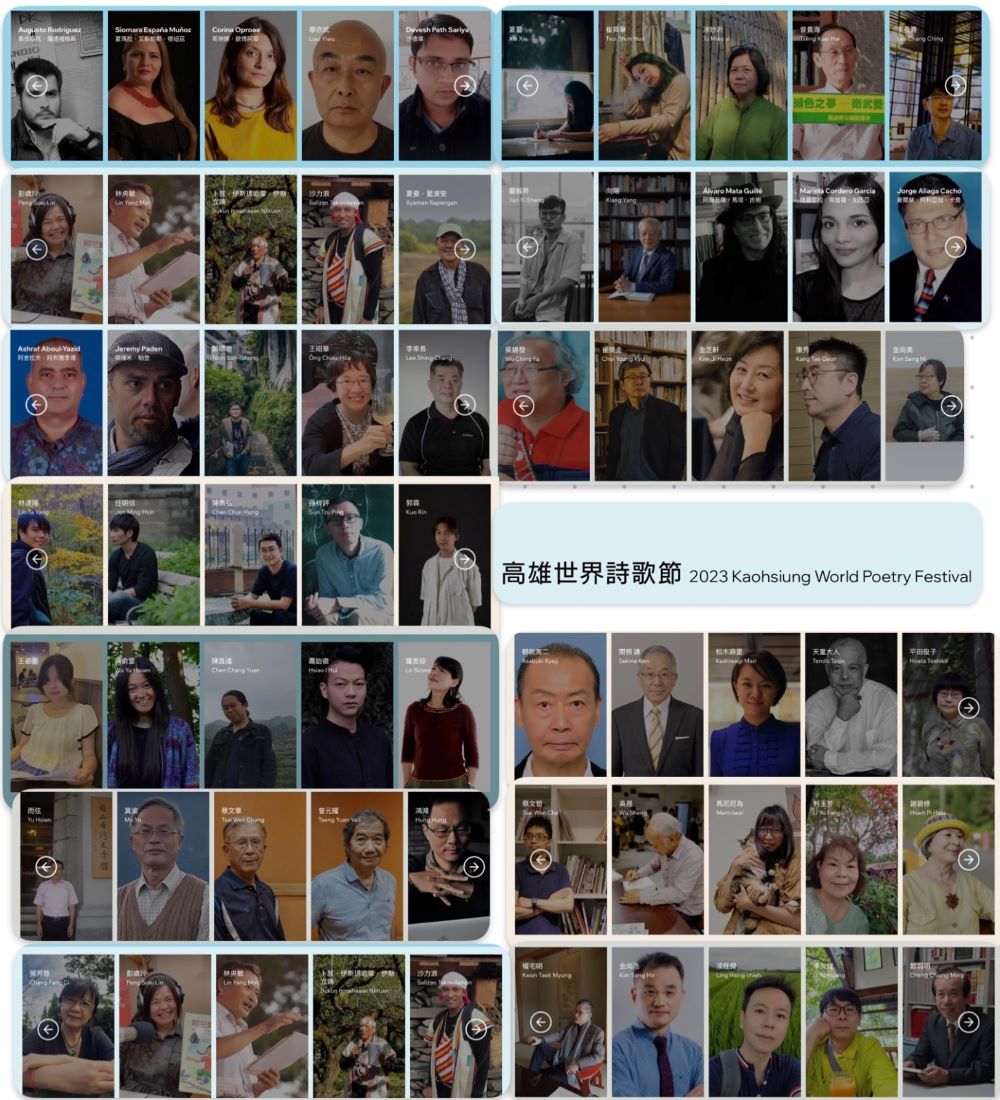
He also proudly said that Kaohsiung has the world-class Niboun Chorus, which was tempered in a hard-working environment, as well as many outstanding poets and writers. He also expressed his gratitude to Dr. Zeng Guihai for winning the Ecuador Huiyeji International Poetry Festival last year. The International Poetry Award expressed congratulations on the resumption of this year’s Poetry Festival; he said that poets and writers are important intangible assets of Taiwan. They are symbols of the great city. In the land of Formosa, excellent and beautiful literature has been created. His works, poems and novels will remain in our hearts forever and be seen by the whole world.
The Cultural Affairs Bureau pointed out that the Kaohsiung World Poetry Festival was first organized in 2005 when Chen Qimai was the acting mayor. After years of planning, in order to restore artistic life after the epidemic, it originated from the Kaohsiung poet Zeng Guihai who was awarded the “Ecuador Huiye Foundation” in November last year. International Poetry Festival” The 15th Ileana Espinel Cedeño International Poetry Award has decided to resume the event this year through poetry. There are 22 poets from 12 countries including Ecuador, the United States, Spain, Japan, South Korea, Egypt, and Malaysia, and 41 poets from Taiwan. A total of 63 poets from the old and younger generation were invited to participate, bringing Kaohsiung closer to the world and promoting international exchanges of poets.
_______________
Ashraf Aboul-Yazid is a renowned Egyptian poet, journalist, novelist, travelogue writer and translator. He is author of around three dozen books and Editor-in-Chief of Silk Road Literature Series.